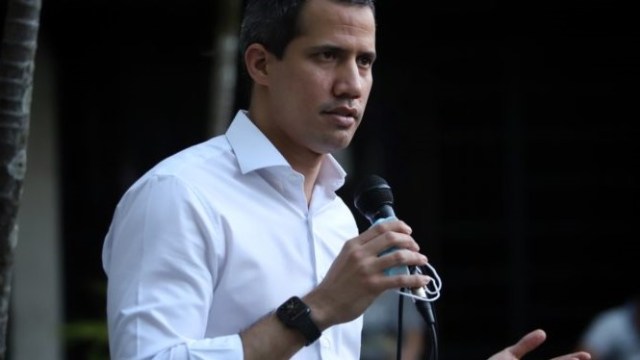
The US-backed branch of Venezuela’s opposition is downsizing a parallel administration and imposing stricter financial and organizational controls over international assets as it seeks to maintain political relevance.
By Argus Media – Patricia Garip
Jan 4, 2022
Juan Guaidó, head of Venezuela’s now-defunct National Assembly who declared an interim presidency in place of incumbent Nicolás Maduro three years ago this month, will retain more of a symbolic role as interim president under a controversial one-year extension of the assembly’s mandate, which was approved by a subset of opposition parties yesterday.
The assembly’s first vice president Juan Pablo Guanipa said a political council – the heart of Guaidó’s precarious administrative structure – have ended, “with the objective of downsizing the bureaucracy and concentrating on the struggle for democracy and freedom of Venezuela.”
Guaidó’s more than 40 diplomatic envoys will be reduced to countries that recognize his authority, Guanipa said.
This effectively means that envoys in Argentina, Perú, México, the Dominican Republic and Panamá as well as Italy would be removed, highlighting Latin America’s disenchantment with Guaidó. Far-flung envoys in places like Rumania and Malta would apparently remain.
Guanipa highlighted the plan for greater oversight in the designation of ad hoc boards for assets controlled by the opposition. The main asset is Venezuelan national oil company PdV’s US refining subsidiary Citgo, whose Delaware-based holding companies are the target of court battles with unpaid bondholders and arbitration claimants led by ConocoPhillips.
The drive for transparency and accountability stems partly from mismanagement and corruption in another opposition-controlled asset, state-owned fertilizer company Monomeros, based in Barranquilla, Colombia.
Guanipa pledged to depoliticize the management of the assets.
Dwindling support
Guaidó’s declaration of an interim presidency in January 2019 swiftly won the recognition of the US, the EU and a host of other countries that rejected the legitimacy of Maduro’s 2018 re-election. At the end of January 2019, the US imposed oil sanctions, adding to previously levied financial sanctions in a failed effort to oust him.
Venezuela’s economy has gradually adapted to the sanctions, illustrated by rising oil production and exports.
In the meantime, Guaidó’s support has steadily dwindled. Key associates in a skeleton exile administration have moved on, and international support for him has faded.
The US government says it will continue to recognize Guaidó as Venezuela’s last legitimately elected authority, and is urging the Maduro government to resume political negotiations with the opposition. The talks sponsored by Mexico fell apart in October 2021.
The State Department said today that the US “continues to recognize Venezuela’s 2015 National Assembly as the last remaining democratic institution and Juan Guaido As Venezuela’s interim president” and welcomes the extension of the Guaido’s mandate.
…
Read More: Argus Media – Guaidó clings to symbolic Venezuelan mandate
…

